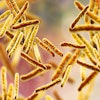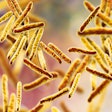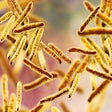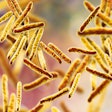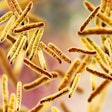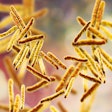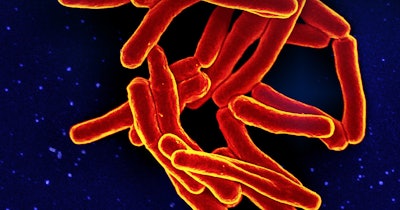
Researchers have developed a tuberculosis (TB) treatment assay that could be a faster, simpler method for monitoring patients.
Researchers at University College London described the test and the need it could address in the journal Clinical Chemistry. The World Health Organization (WHO) recommends healthcare professionals carry out sputum cultures every month to monitor the effects of TB treatment, which typically lasts six months. However, sputum culture takes weeks and requires infrastructure that is lacking in some parts of the world, notably in low- and middle-income countries (LMICs).
To address the need for more timely tests for treatment failure, the researchers sought to improve the molecular bacterial load assay (MBLA) that they developed more than 10 years ago. The test detects 16S rRNA to monitor bacterial killing but has features that limit its use.
Scientists need molecular expertise and a well-equipped, biosafety level 3 (BSL-3) laboratory to perform the MBLA. The researchers wanted to make the assay safe to carry out in more widely available BSL-2 labs, which required them to find a way to render the pathogen noninfectious while preserving the 16S rRNA that is essential to the accuracy of the test.
The researchers found 8% acetic acid rendered sputum fully safe to handle at BSL-2 after 30 minutes. While MBLA requires toxic chemicals, acetic acid is “nontoxic, cheap, and safe to add to the sample at the clinic,” the authors wrote.
There was no significant loss in 16S rRNA or an unprotected mRNA fragment when sputum was stored in acetic acid at 25° C for two weeks or −20° C for one year. The viability of storage at −20° C makes the assay practical in parts of the world that lack access to −70° C freezers, bolstering the case for using the test, which the researchers call READ-TB, in LMICs with a high TB burden.
“READ-TB will have a particular impact in low- and middle-income countries for laboratories with no BSL-3 laboratory and for clinical trials testing new combinations of anti-tuberculosis drugs,” the authors wrote.
The researchers also showed that acetic acid preservation of sputum is compatible with the GeneXpert MTB/RIF Ultra test. The test, which is sold by Cepheid, is commonly used to diagnose TB in sputum and to detect rifampicin resistance. Researchers have assessed the test in the monitoring of TB treatment, but found that poor specificity prevents it from replacing sputum culture.
